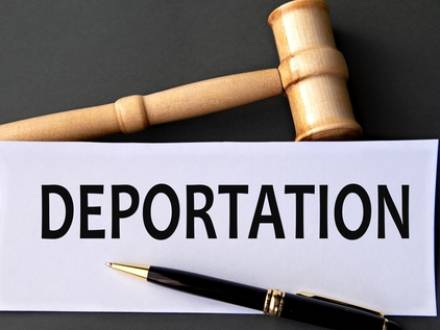Recent Blog Posts
What is Special Immigrant Juvenile Status?
 As a federal immigration classification enabling non-citizen immigrant children who require the protection of a juvenile court due to neglect, abandonment, or abuse by a parent, Special Immigrant Juvenile status allows the child to acquire lawful permanent residence.
As a federal immigration classification enabling non-citizen immigrant children who require the protection of a juvenile court due to neglect, abandonment, or abuse by a parent, Special Immigrant Juvenile status allows the child to acquire lawful permanent residence.
Lawful permanent residency is also known as obtaining a Green Card. Those who may be eligible for Special Immigrant Juvenile Status should speak to a knowledgeable national immigration attorney who can determine whether the juvenile is eligible and assist in filing the correct paperwork.
Eligibility for Special Immigrant Juvenile Status
Those who file for SISJ must meet the following criteria:
- The juvenile must currently live in the United States.
- The juvenile must be under the age of 21.
- The juvenile must have a valid court order from a state court that finds the juvenile is a dependent of the court, is in the custody of a state department or agency, or is in the custody of a court-appointed entity or individual.
Legal Aid Temporarily Restored to Migrant Children
 As immigration laws continue to change at a dizzying pace, some federal judges are stepping forward to halt some of the most destructive moves by the federal government. A federal judge in California ordered the current administration to temporarily restore legal aid to migrant children in the U.S. without a parent or guardian on April 2.
As immigration laws continue to change at a dizzying pace, some federal judges are stepping forward to halt some of the most destructive moves by the federal government. A federal judge in California ordered the current administration to temporarily restore legal aid to migrant children in the U.S. without a parent or guardian on April 2.
It is estimated that there are as many as 26,000 of these vulnerable children. On March 21, a contract with the Acacia Center for Justice was terminated. Through a network of legal aid groups that subcontract with Acacia, legal services are provided for unaccompanied migrant children under the age of 18.
Unfortunately, the current order only runs through April 16. The original Trafficking Victims Protection Reauthorization Act of 2008 created protections for migrant children unable to navigate the complicated immigration system on their own, whether because they are too young to speak, too traumatized to speak, or do not speak English. The Act provided legal counsel to represent these children, protecting them from trafficking, exploitation, or mistreatment.
Can a Deported Person Return by Marrying a U.S. Citizen?
 Suppose a couple has been living with one another for months, or even years, with the intention of marrying at some point in the future. The woman has an employment authorization document that requires renewals. The couple may even have children, and both have steady jobs. The woman is picked up by ICE at her workplace one day and is not even allowed to call her partner. She soon finds herself dropped off in Mexico, where she no longer has family or friends. With no money and no job, she is frantic to speak to her partner and return to the U.S. so they can marry.
Suppose a couple has been living with one another for months, or even years, with the intention of marrying at some point in the future. The woman has an employment authorization document that requires renewals. The couple may even have children, and both have steady jobs. The woman is picked up by ICE at her workplace one day and is not even allowed to call her partner. She soon finds herself dropped off in Mexico, where she no longer has family or friends. With no money and no job, she is frantic to speak to her partner and return to the U.S. so they can marry.
Depending on the specific type of immigration status, deported individuals may be able to re-enter the country by marrying a U.S. citizen through a waiver of inadmissibility. This waiver sometimes allows those who have been deported to return to the U.S. early, receiving either a green card or an immigrant visa. To be sure, it is not an easy path for a deportee to re-enter the United States because once removed, he or she is considered "inadmissible." This requires spending a certain amount of time outside the U.S. before returning – a process that can take years.
What Is "Chain Migration?"
 There is plenty of misinformation out there regarding immigration in general and chain migration specifically, which is a term often used to imply that immigrants in the country are bringing huge numbers of distant relatives into the country. There are two categories of family visas – Immediate relative visas and family preference visas.
There is plenty of misinformation out there regarding immigration in general and chain migration specifically, which is a term often used to imply that immigrants in the country are bringing huge numbers of distant relatives into the country. There are two categories of family visas – Immediate relative visas and family preference visas.
Spouses, parents, or unmarried children under the age of 21 of a U.S. citizen qualify under the immediate relative category. A family preference visa is for a non-immediate relative of a U.S. citizen, including adult sons, daughters, and siblings.
As you can see, the number of family members who can obtain a family-based visa under the Family Reunification policy is very limited. As of 2024, the number of family preference visas issued annually was capped at fewer than 250,000. With the new administration, it is unknown whether family preference visas and immediate relative visas will continue.
Can I Still Enter the U.S. Under Asylum Status?
 Under the new administration, immigration policies have been changed, including former asylum rules that allowed individuals into the United States. As of January 27, 2025, entry into the United States of refugees under the USRAP has been suspended—subject to certain exceptions. The Secretary of State and the Secretary of Homeland Security can jointly determine to admit individuals or families into the United States as refugees on a case-by-case basis.
Under the new administration, immigration policies have been changed, including former asylum rules that allowed individuals into the United States. As of January 27, 2025, entry into the United States of refugees under the USRAP has been suspended—subject to certain exceptions. The Secretary of State and the Secretary of Homeland Security can jointly determine to admit individuals or families into the United States as refugees on a case-by-case basis.
This can only be done if a determination is made that the entry of the refugee or refugees is in the national interest and poses no threat to the security of the United States. If you had planned to enter the United States under an application for asylum, you should speak to an experienced Herndon, VA immigration attorney to determine whether you may still be eligible.
Can Marriage Protect You from Deportation?
 Immigrants married to U.S. citizens make up about 18.2 percent of the total immigrant population. For those who want to immigrate to the U.S., obtaining a green card through a spouse must be done prior to naturalization or eventual citizenship. While most of us believe that marriage to a U.S. citizen guarantees a pathway to permanent residency or a green card, this is far from the reality in many different situations.
Immigrants married to U.S. citizens make up about 18.2 percent of the total immigrant population. For those who want to immigrate to the U.S., obtaining a green card through a spouse must be done prior to naturalization or eventual citizenship. While most of us believe that marriage to a U.S. citizen guarantees a pathway to permanent residency or a green card, this is far from the reality in many different situations.
While it is certainly a strong foundation for legal immigration status, this does not mean in every case that a person married to a U.S. citizen can stay in the United States indefinitely. With the current administration’s focus on deporting immigrants, some immigrants who believe their right to be in the U.S. is absolute could find out that is not always true.
In fact, there are certain situations where an immigrant who is married to a U.S. citizen could potentially face deportation. If you obtained your green card through marriage to a U.S. citizen and you are now worried about deportation, it is important that you speak to an experienced Herndon, VA immigration attorney.
Understanding Birthright Citizenship
 Last week, a federal judge blocked an executive order to end birthright citizenship – at least temporarily. The order would have denied automatic citizenship to children born in the United States to noncitizen parents. The judge who blocked the executive order called it "blatantly unconstitutional." There is currently a four-state (Arizona, Illinois, Oregon, and Washington) lawsuit challenging the move to end birthright citizenship, and this hearing was only the first.
Last week, a federal judge blocked an executive order to end birthright citizenship – at least temporarily. The order would have denied automatic citizenship to children born in the United States to noncitizen parents. The judge who blocked the executive order called it "blatantly unconstitutional." There is currently a four-state (Arizona, Illinois, Oregon, and Washington) lawsuit challenging the move to end birthright citizenship, and this hearing was only the first.
The lawsuit argues that the executive order violates the 14th Amendment, which guarantees citizenship to all those born on U.S. soil. Legal precedent dates back to a landmark 1898 Supreme Court case, United States v. Wong Kim Ark. This lawsuit is one of several, filed by 22 states and immigrant advocacy groups, all of which point out the harm to children who could be effectively left "stateless."
How Are Children Impacted by Immigration Deportations?
 Immigration issues continue to be at the top of the news as a new administration is poised to take office. There is worry and concern among families that are made up of at least one undocumented immigrant. More than 16.7 million people across the United States share a home with at least one undocumented family member – often a parent. As many as six million of these individuals are children.
Immigration issues continue to be at the top of the news as a new administration is poised to take office. There is worry and concern among families that are made up of at least one undocumented immigrant. More than 16.7 million people across the United States share a home with at least one undocumented family member – often a parent. As many as six million of these individuals are children.
This means that when deportations occur, the children can suffer extensive economic, emotional, and developmental repercussions. Imagine, if you will, a mother with four young children being dragged away in handcuffs by ICE as her children watch. What will happen to these children? Will they see their mother again? Children of undocumented parents face exceptional challenges and risks when a parent is detained or deported.
As we all wait to see what will happen, families with an undocumented member are likely anxious, stressed, and unsure of what to do. If you find yourself in this situation, it can be extremely beneficial to speak to a knowledgeable Herndon, VA immigration attorney who will assess your situation and help you determine your best course of action.
Bringing Siblings to the U.S. Under Family-Based Immigration
 Family-based immigration laws allow a person to bring his or her sibling to the United States, although siblings are not in the "immediate relative" category. The Immigration and Nationality Act defines an immediate relative only as a spouse, parent, or child under the age of 21 of a U.S. citizen. So, even though many of us think of our siblings as "immediate" relatives, immigration officials do not; siblings are known as "preference" relatives.
Family-based immigration laws allow a person to bring his or her sibling to the United States, although siblings are not in the "immediate relative" category. The Immigration and Nationality Act defines an immediate relative only as a spouse, parent, or child under the age of 21 of a U.S. citizen. So, even though many of us think of our siblings as "immediate" relatives, immigration officials do not; siblings are known as "preference" relatives.
Since the number of family-based visas that can be issued each year is limited, there is always a backlog for a brother or sister family-based visa. This means that families can be separated for many years, missing all the family milestones in the interim. If you have a family-based immigration issue, an experienced Herndon, VA immigration attorney can help.
How Does Family Preference Immigration Work?
The enactment of the Immigration and Nationality Act of 1965 established family ties as the primary way for immigrants to come to America. Today, family visas account for about 65 percent of legal immigration each year. An average of 3.5 relatives are sponsored by a single American citizen.
How Could Mass Deportation Plans Affect Virginia?
 Virginia’s Cardinal News reported some eye-opening facts in March 2024 regarding how mass deportation could affect the state. For the most part, that effect would not be positive. The most recent estimates from the Migration Policy Institute are from 2016, which placed Virginia’s undocumented population at about 250,000. It is safe to assume that this number has likely increased over the past eight years.
Virginia’s Cardinal News reported some eye-opening facts in March 2024 regarding how mass deportation could affect the state. For the most part, that effect would not be positive. The most recent estimates from the Migration Policy Institute are from 2016, which placed Virginia’s undocumented population at about 250,000. It is safe to assume that this number has likely increased over the past eight years.
So, what would be the impact of removing a quarter of a million people – 70 percent of which are employed – from Virginia’s workforce? As you might imagine, the effect would be substantial. Family immigration issues are in a precarious place right now, leaving many filled with anxiety about the future. If you or a loved one are seeking some form of family-based immigration, now is the time to speak to a knowledgeable Herndon, VA family immigration attorney from Immigration Legal Advisors, PLLC.





